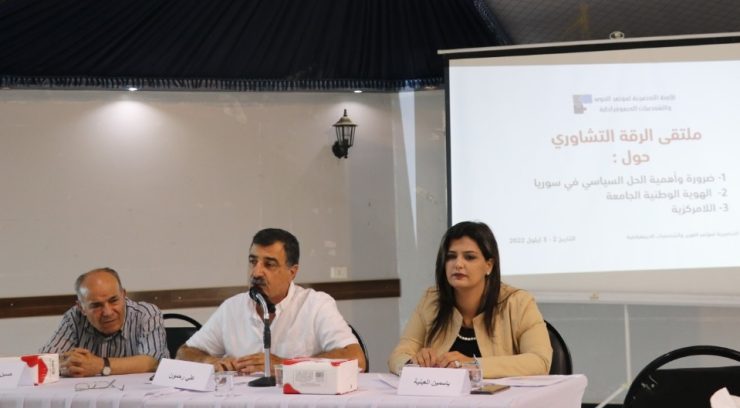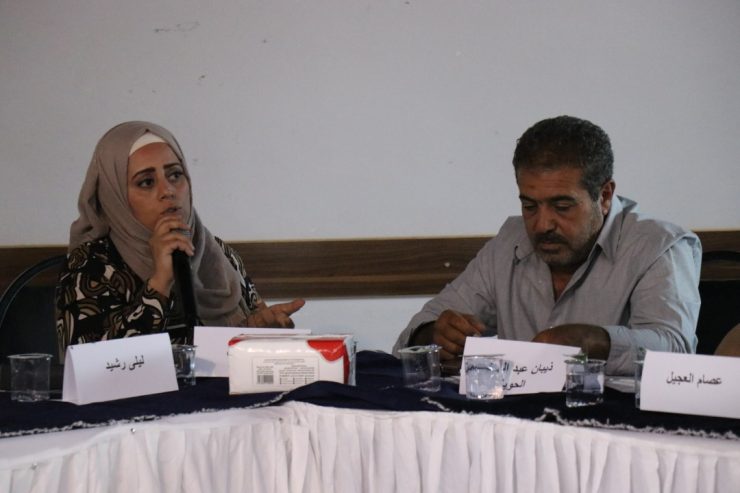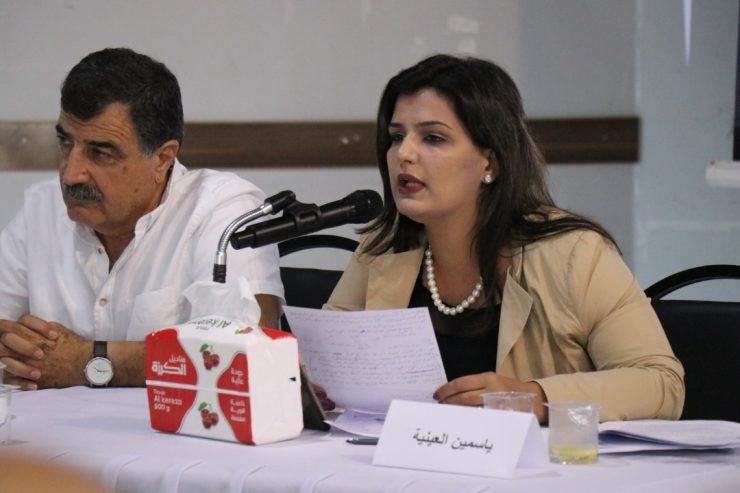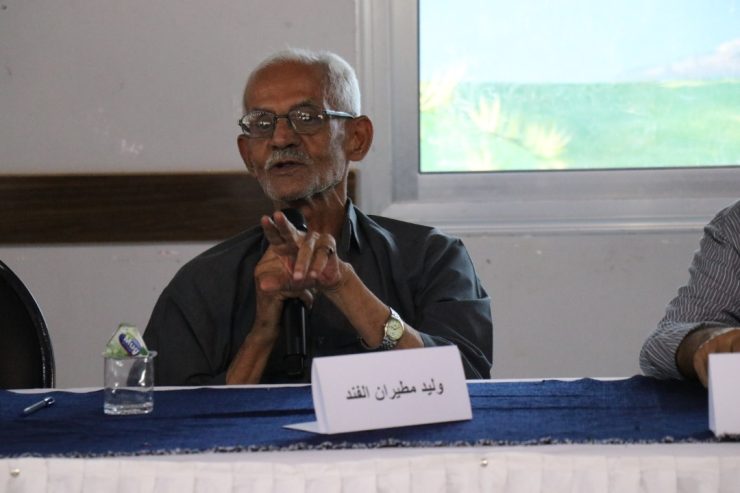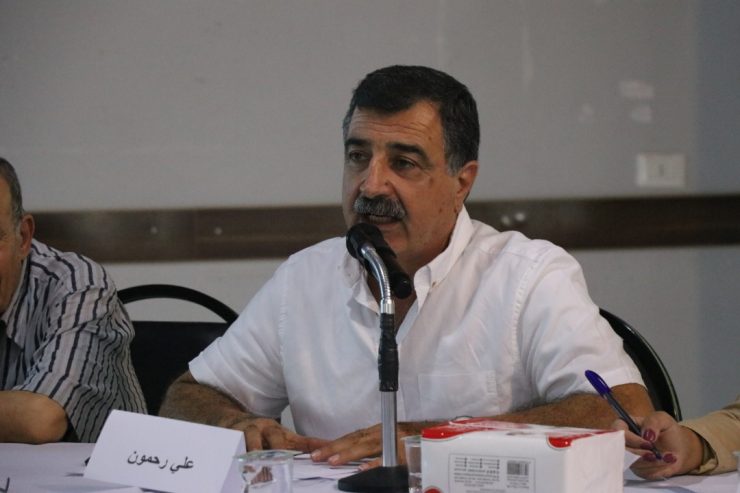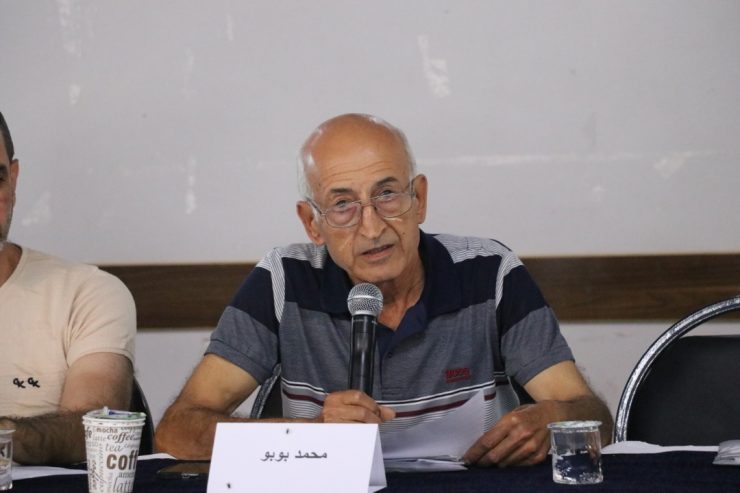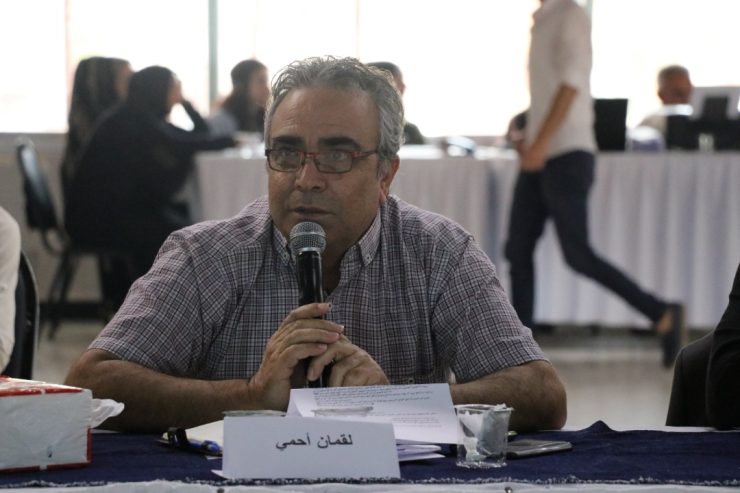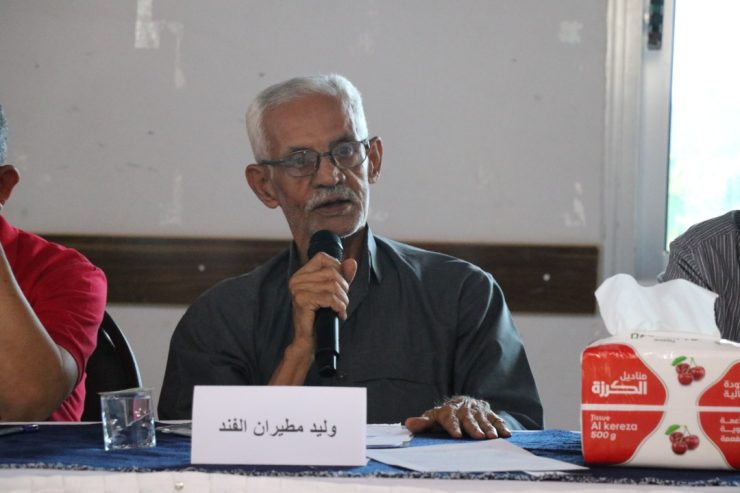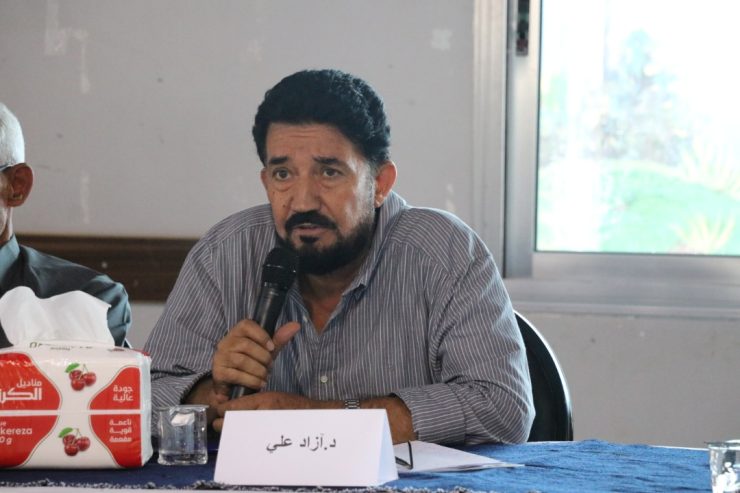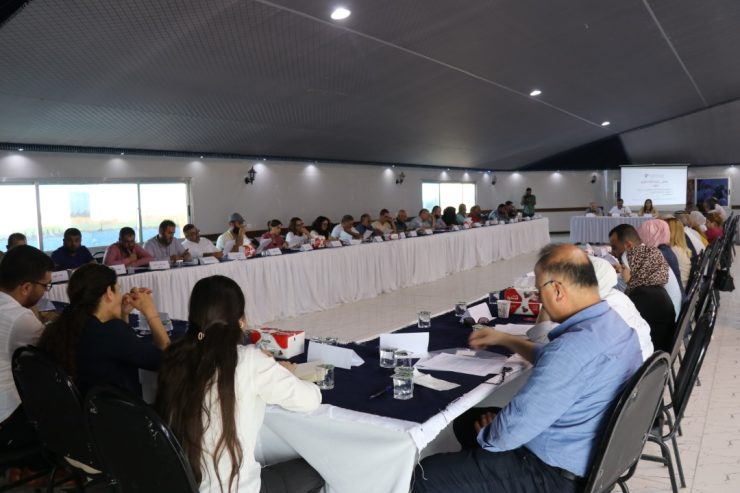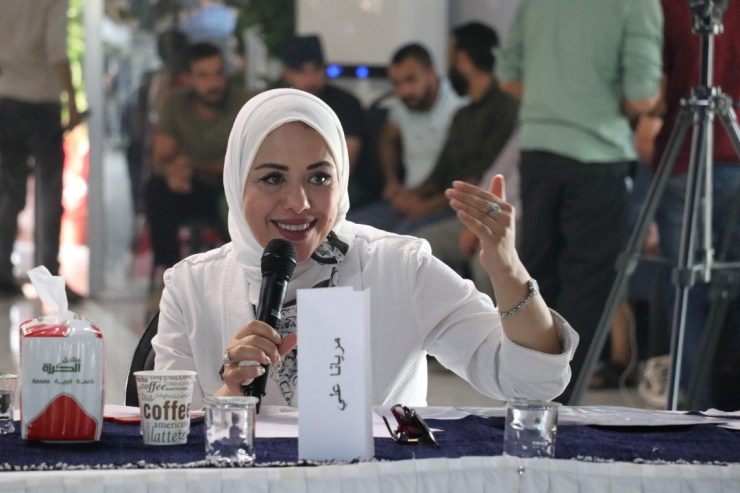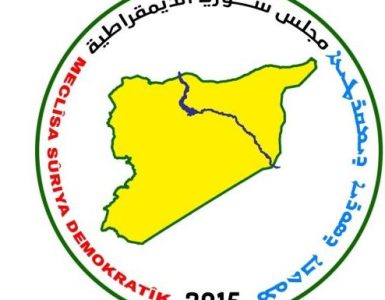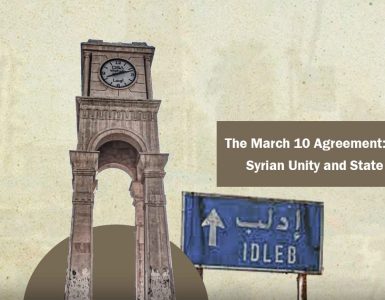Syrians discuss the national identity in the city of Raqqa in northern and eastern Syria
On Friday, September 2nd, the Raqqa Consultative Forum was held at the invitation of the preparatory committee for the conference of Democratic Powers and Figures, where a number of figures and representatives of political powers and movements discussed the concept of the inclusive national identity that seeks to reunite Syrians and unite their ranks in a national framework.
That concept was the theme of the second session at the forum and was initiated by Ali Rahmon, a member of the preparatory committee for the conference. “The Syrian inclusive national identity represents an umbrella that brings together the ethnic, cultural, religious, sectarian, national and class diversity in Syria on the basis of citizenship, which is a changing and flexible identity based on rational communication, not on the basis of belonging.” Ali Rahmon said.
Yasmin Al-Ayniyah, the director of the Syriana Women’s Forum, who came from rural Damascus, stressing on “supporting youth groups and ensuring that young people do not emigrate and losing elites because they are the developing groups of societies and considering the issue of forming a Syrian inclusive national identity as one of the tools for resolving the Syrian crisis because it eases divisions, strengthens confidence and removes doubts”.
“The true democracy is the greatest guarantor of national identity, and by it the principles of justice, equality, non-discrimination, equal opportunities, preservation of rights and the rule of law are achieved, and that the fragmentation of the national identity is an old issue that the regime has entrenched on different components, but the national identity must decrease during the crisis in Syria and achieve the participation of all components in it.” Nour al-Ajeel, the regional director of Mary Organization, who is coming from Deir Ez-Zor, said.
As for Muhammed Bobo, who is coming from the city of Latakia, he was surprised that although a century has passed since the establishment of the Syrian state and it is still suffering from a crisis regarding its national identity, represented by an internal division among Arab, Islamic and Syrian tendencies. “The civilization of Syria during thousands of years is too great to be reduced to the civilization of the Arab era in the last nations that settled in Syria, and the past of Syria must be reconsidered in favor of the Syrian national democratic project because the Arab identity is one of the sub-identities of the Syrian inclusive national identity, and the recognition of the right of all Syrians to partnership in governance and self-determination of the country and its future.” Muhammed Bobo said.
Walid Al-Mutairan, a member of the Coordination Committee from Deir ez-Zor, highlighted the confusion between the concepts of national identity and national belonging, noting that there are many nationalist movements inside Syria and Syria is also a member of the league of Arab states, which must be taken into account to obtain the consensus of the Syrians, pointing out his pride in all the existing components, provided that they should be concerned about the homeland and its development.
“Identities are not made, but they are produced in long-term historical contexts, and the identity we want is the constitutional legal political identity in Syria as a political and legal regime, but an affiliation should be voluntarily later under good governance and practical practice,” Dr. Azad Ali, an academic and political researcher from Al-Qamishli, also stated.
” Therefore, we must work to define identity as a legal, political and legitimate formula for coexistence, common political will and the state of voluntary union until it will be cultural, which is necessarily a complex and flexible identity as it was stated.” Ali added.
Luqman Ahmi, the Co-Chairman of the Green Democratic Party, used the simplification method. “The Identity starts from the descriptions of the person who owns it, as well as national parties and movements, and the multinational countries did not agree on a national identity, but agreed on a patriotic identity, starting from Iraq and Sudan to multi-ethnic Switzerland, which is surrounded by many countries such as Italy, France and Germany.” Luqman Ahmi said.
In conclusion, Mariana Ali, who is coming from the countryside of Aleppo, touched on the issue of Syrian expatriates and she wondered about the fate of their children in their places of refuge, how will their sub-identities be in the future? She went on to say that the lack of an inclusive identity made sub-identities become enlarged and take root more during the war and that what is needed to develop this concept will only be a national social contract and educational curricula that will establish subsequent generations.


